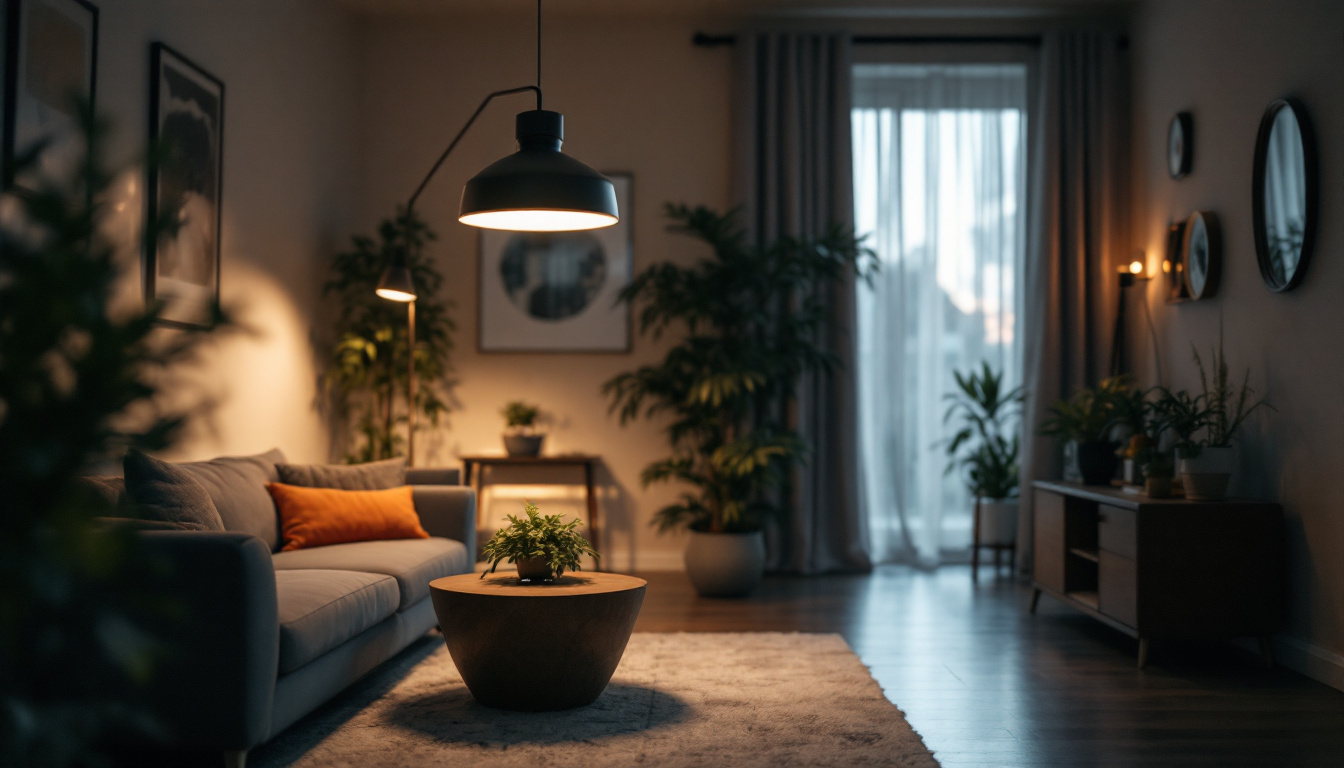
Lighting contractors play a pivotal role in the construction and renovation industry, ensuring that spaces are not only illuminated but also aesthetically pleasing. One of the key components of this profession is the selection and installation of electrical fixtures. Understanding the pros and cons of various fixtures is essential for making informed decisions that can impact both the quality of work and client satisfaction. This article delves into the advantages and disadvantages of electrical fixtures, providing valuable insights for lighting contractors.
Choosing the right electrical fixtures is crucial for several reasons. First and foremost, the right fixtures can enhance the functionality of a space. Whether it’s a residential home or a commercial building, lighting plays a significant role in how a space is perceived and used. Additionally, the choice of fixtures can affect energy efficiency, maintenance costs, and even the overall aesthetic appeal of a project. The right lighting can transform an ordinary room into a vibrant environment, influencing mood and productivity, which is particularly important in workspaces where optimal lighting can lead to better performance and creativity.
Furthermore, lighting contractors must consider the specific needs of their clients. Different environments require different types of lighting solutions. For instance, a retail space may require bright, focused lighting to highlight products, while a cozy restaurant may benefit from softer, ambient lighting. Understanding these nuances can help contractors make better recommendations, ultimately leading to higher client satisfaction and repeat business. In addition, the integration of smart lighting systems is becoming increasingly popular, allowing clients to customize their lighting based on time of day or specific activities, further enhancing the user experience.
Electrical fixtures come in various types, each serving unique purposes. Common categories include recessed lighting, pendant lights, chandeliers, and wall sconces. Each type has its own set of advantages and disadvantages, which can significantly influence a contractor’s choice. For instance, while recessed lighting is often favored for its minimalist look, it may not provide adequate illumination for larger spaces without the addition of supplementary fixtures.
Recessed lighting, for example, is popular for its sleek appearance and ability to blend seamlessly into ceilings. However, it may require more complex installation and can be less effective in providing ambient light compared to other fixtures. On the other hand, pendant lights can serve as both functional and decorative elements, making them a versatile choice for many settings. They come in a variety of styles, from industrial to modern, allowing for personalization that can match the overall design theme of a room. Moreover, chandeliers, often seen as symbols of elegance, can dramatically elevate the ambiance of dining areas or entryways, while wall sconces can provide soft lighting that enhances architectural features or artwork. Each fixture type not only serves a practical function but also contributes to the overall narrative of a space, making the selection process all the more significant for contractors and homeowners alike.
When evaluating electrical fixtures, it’s essential to consider the various benefits they offer. From energy efficiency to aesthetic appeal, the advantages can significantly impact the success of a lighting project.
One of the most compelling reasons to consider modern electrical fixtures is their energy efficiency. Many contemporary fixtures are designed to accommodate LED bulbs, which consume significantly less energy than traditional incandescent bulbs. This not only reduces electricity costs for clients but also aligns with growing sustainability trends.
Moreover, energy-efficient fixtures often come with longer lifespans. This means less frequent replacements, which can be a significant selling point for clients concerned about long-term maintenance costs. By recommending energy-efficient fixtures, contractors can position themselves as environmentally conscious professionals who prioritize sustainability. Additionally, many regions offer incentives or rebates for the installation of energy-efficient lighting, further enhancing the financial appeal for clients looking to upgrade their electrical fixtures.
Electrical fixtures are available in a myriad of styles, colors, and finishes, allowing contractors to cater to diverse client preferences. Whether a client desires a modern, minimalist look or a more traditional, ornate design, there’s a fixture to match every aesthetic.
This versatility enables contractors to create customized lighting solutions that enhance the overall design of a space. Additionally, well-chosen fixtures can serve as focal points in a room, drawing attention and adding character. This can be particularly important in commercial settings where branding and ambiance are key to attracting customers. For instance, unique pendant lights can enhance a restaurant’s theme, while sleek, modern fixtures can elevate a retail space, making it more inviting and engaging for shoppers.
Another significant advantage of electrical fixtures is their ability to improve the functionality of a space. Properly placed lighting can enhance visibility, making it easier for occupants to navigate and use the space effectively. For example, task lighting in kitchens or workspaces can provide the necessary illumination for specific activities, while ambient lighting can create a welcoming atmosphere.
Furthermore, many modern fixtures come equipped with smart technology, allowing for customizable lighting solutions. This can include features such as dimming capabilities, color temperature adjustments, and even remote control via smartphones. Such advancements not only enhance user experience but also offer contractors an opportunity to provide cutting-edge solutions that set them apart from competitors. The integration of smart home technology is becoming increasingly popular, allowing users to automate their lighting systems for energy savings and convenience. This trend not only appeals to tech-savvy clients but also adds a layer of sophistication to any lighting project, making it a worthwhile investment for both residential and commercial applications.
While there are numerous advantages to electrical fixtures, it is equally important to consider their potential drawbacks. Understanding these cons can help contractors make informed decisions and manage client expectations effectively.
One of the primary challenges associated with electrical fixtures is the installation process. Some fixtures, particularly recessed lighting and complex chandeliers, may require specialized skills and tools for proper installation. This can lead to increased labor costs and extended project timelines, which may not align with client expectations.
Additionally, improper installation can result in safety hazards, such as electrical fires or malfunctions. Therefore, contractors must be diligent in ensuring that all installations adhere to local building codes and safety regulations. This may necessitate additional training or hiring skilled electricians, which can further complicate project logistics.
Another consideration is the ongoing maintenance that some electrical fixtures may require. Fixtures with intricate designs or those that are difficult to access can be challenging to clean and maintain. This can lead to dissatisfaction among clients who expect their lighting solutions to remain in pristine condition over time.
Moreover, while energy-efficient fixtures may have longer lifespans, they can still require periodic replacements or repairs. Contractors should communicate these maintenance needs to clients upfront to avoid misunderstandings later on. Providing clients with guidance on how to care for their fixtures can also enhance the contractor-client relationship.
While energy-efficient fixtures can save money in the long run, the initial investment may be higher compared to traditional options. This can be a point of contention for clients who are budget-conscious. Contractors must be prepared to justify the costs by highlighting the long-term savings and benefits associated with higher-quality fixtures.
Additionally, the wide range of options available can sometimes overwhelm clients, making it challenging for them to make a decision. Contractors should take the time to educate clients on the various options, helping them understand the value of investing in quality fixtures that meet their specific needs.
To navigate the complexities of electrical fixtures effectively, lighting contractors can adopt several best practices. These strategies can enhance project outcomes and improve client satisfaction.
The lighting industry is constantly evolving, with new technologies and design trends emerging regularly. Contractors should make it a priority to stay informed about the latest developments in electrical fixtures. This can include attending trade shows, participating in workshops, and subscribing to industry publications.
By staying current, contractors can offer clients the most up-to-date solutions, positioning themselves as knowledgeable experts in the field. This not only builds trust but also enhances the contractor’s reputation within the industry.
Effective communication with clients is essential for successful project outcomes. Contractors should take the time to consult with clients about their specific needs, preferences, and budget constraints. This collaborative approach can lead to more tailored lighting solutions that align with client expectations.
Additionally, contractors should provide clients with clear information about the pros and cons of various fixtures. This transparency can help clients make informed decisions and foster a sense of partnership throughout the project.
Once the installation is complete, contractors should offer clients guidance on how to maintain their electrical fixtures. This can include tips on cleaning, troubleshooting common issues, and understanding warranty information. Providing this support can enhance the client experience and encourage repeat business.
Furthermore, contractors can consider offering maintenance services as an add-on to their installation packages. This not only generates additional revenue but also reinforces the contractor’s commitment to quality and client satisfaction.
In summary, electrical fixtures play a crucial role in the work of lighting contractors. Understanding the pros and cons associated with various fixtures can help contractors make informed decisions that enhance project outcomes and client satisfaction. By staying informed about industry trends, consulting with clients, and providing maintenance guidance, contractors can position themselves as trusted experts in the field.
Ultimately, the right electrical fixtures can elevate a project, creating spaces that are not only functional but also visually appealing. By carefully weighing the advantages and disadvantages, lighting contractors can ensure they deliver exceptional results that meet the diverse needs of their clients.
Ready to take your lighting projects to the next level? At LumenWholesale, we provide lighting contractors with an exceptional range of top-quality, spec-grade lighting products at unbeatable wholesale prices. Say goodbye to local distributor markups and hello to superior lighting products that meet the highest industry standards. With our hassle-free bulk buying and free shipping, you can equip your projects with premium lighting at the best value — all without hidden fees or compromises. Elevate your lighting installations with the perfect blend of quality, affordability, and convenience. Explore our selection and find the best wholesale lighting for your needs today!

Discover essential insights into LED tape lights tailored for lighting contractors.

Discover essential insights into electrical outlets that every lighting contractor should master.

Discover the pivotal role automatic lighting systems play for contractors in enhancing efficiency, safety, and sustainability.

Discover expert insights on choosing and installing indoor sensor lights with ease.